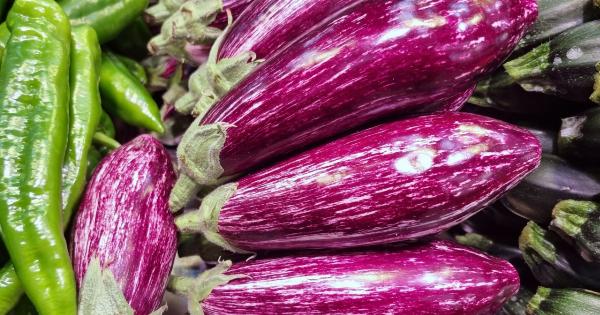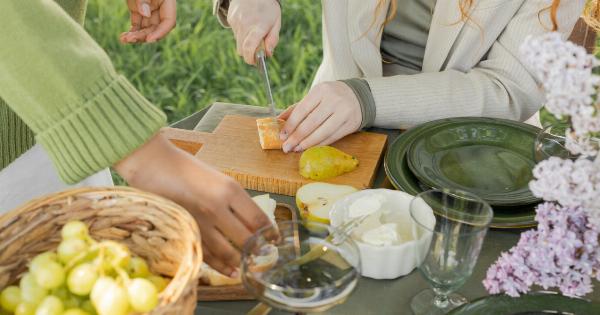It is a well-known fact that vegetables have a shorter shelf life than most other foods. This can become a problem for those who want to ensure that they have fresh, nutrient-rich vegetables available for consumption at all times.
However, with a few simple tips and tricks, you can extend the life of your vegetables and keep them fresh and tasty for longer periods of time.
1. Proper storage
One of the most important factors in extending the life of your vegetables is proper storage. Different vegetables require different storage conditions. Some like to be stored in a cool and dry place, while others thrive in a humid environment.
For example, onions and garlic should be stored in a cool, dry place such as a pantry or cupboard. Root vegetables like carrots and potatoes should be stored in a cool, dark place to prevent them from sprouting.
Leafy greens like lettuce and kale should be stored in the fridge in a plastic bag or container with a damp paper towel to retain moisture.
2. Washing vegetables
Before storing your vegetables, it is crucial to wash them thoroughly. Washing can remove dirt, pesticides, and any other contaminants that may cause them to spoil faster.
However, it is important to dry your vegetables thoroughly before storage. Moisture is one of the main factors that can cause vegetables to spoil faster.
After washing, dry your vegetables with a clean towel or paper towel and then store them in the appropriate location.
3. Freezing vegetables
Freezing your vegetables is a great way to extend the life of your produce. Frozen vegetables can last up to one year or longer if stored properly, making them a convenient and cost-effective alternative to fresh vegetables.
Before freezing, however, it is important to blanch your vegetables. Blanching involves boiling your vegetables for a short period of time and then immediately placing them in ice water to stop the cooking process.
This helps to retain the flavor, texture, and color of your vegetables.
4. Canning vegetables
Canning is another popular method for preserving vegetables. Canned vegetables can last for several years when stored in a cool, dry place.
You will need to invest in some equipment, such as a pressure canner or water bath canner, and follow the proper canning technique to ensure the safety and shelf life of your canned vegetables.
5. Using your freezer to your advantage
Your freezer can be a powerful ally when it comes to extending the life of your vegetables. Not only can you freeze your vegetables for later use, but you can also use your freezer to make vegetable stock or soup.
Simply store your vegetable scraps, such as onion peels, carrot ends, and celery leaves, in a bag or container in your freezer.
When you have accumulated enough scraps, place them in a pot with water and simmer for 30-60 minutes to make a delicious vegetable broth or stock.
6. Plan your meals
One of the most effective ways to extend the life of your vegetables is to plan your meals ahead of time. By knowing what you will be cooking and when, you can ensure that you use your vegetables before they spoil.
Try to incorporate your vegetables into meals that can be frozen for later use. This way, you can use up your vegetables before they spoil and have a freezer full of delicious meals that can be reheated when you need them.
7. Use a vacuum sealer
A vacuum sealer can be a great investment for extending the life of your vegetables. By removing the air from your storage bags, a vacuum sealer can help to prevent your vegetables from spoiling due to excess moisture and oxygen.
A vacuum sealer can also be used to portion your vegetables for meals and to keep them organized in your freezer or pantry.
8. Keep an eye on expiration dates
Even if you store your vegetables properly, they will eventually spoil. It is important to keep an eye on expiration dates and to use your vegetables before they go bad.
If you have vegetables that are nearing their expiration date and you know that you will not be able to use them in time, try freezing them or using them to make vegetable stock or soup.
9. Know when to buy in bulk
Buying in bulk can be a great way to save money on your vegetables, but it can also lead to waste if you do not use your produce in time.
Try to buy in bulk only when you know that you will be able to use your vegetables before they spoil. If you are unsure about how long your vegetables will last, it may be better to buy smaller quantities.
10. Know how to revive wilted vegetables
If you have vegetables that are starting to wilt, there are a few tricks that you can try to revive them.
For leafy greens like lettuce, immerse them in cold water for 5-10 minutes to help revive them. For carrots and celery, try soaking them in ice water for a few hours to help restore their crispness.
By following these simple tips and tricks, you can extend the life of your vegetables and ensure that you always have fresh, nutrient-rich produce on hand.





























